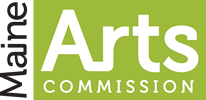All applications must be submitted through the online Application Portal. Once an application is started, the applicant may make changes up until the deadline. When completed, the applicant must hit the ‘Submit’ button on the final page. This locks the application and makes it ready for review. The application includes an online form and attachments to be uploaded.
Application Questions
(All character counts include spaces. 2,550 characters/page)
For Mentor:
- Describe your current studio practice, including your business structure and where you sell or exhibit your work. (Max: 500 characters.)
- To the best of your ability, assess the apprentice’s potential and commitment to this craft form. (Max: 500 characters max)
- How do you and the apprentice know one another, why did you choose this apprentice? (Max: 500 characters)
For Apprentice:
- Tell us how long you have been working in this craft and any previous instruction (Max: 500 characters)
- Where are you currently making, how much time are you working on your craft and are you selling or exhibiting work? (Max: 500 characters)
- What do you hope to accomplish with this apprenticeship experience? (Max: 500 characters)
- Why do you want to work with this mentor in particular? (Max: 500 characters)
- In what ways do you plan to continue working with this craft form or technique in the future? (Max: 500 characters)
For Both Mentor and Apprentice:
- Where will the teaching take place? (Max: 100 characters.)
- What type of schedule will you arrange? (Max: 100 characters.)
- Are there any distance, mobility, communication, technology, space or schedule concerns or barriers that you will need to overcome? (Max: 500 characters.)
Apprenticeship Plan Goals:
CAP requiresone-on-one training from the mentor for 100 hours over seven months. List three goals that will advance the apprentice's practice and can be taught in this amount of time.
- Goal 1: Please give a brief description of the goal and provide estimated hours to accomplish it. (Max: 500 characters.)
- Goal 2: Please give a brief description of the goal and estimated hours to accomplish it. (Max: 500 characters.)
- Goal 3: Please give a brief description of the goal and estimated hours to accomplish it. (Max: 500 characters.)
Apprentice Budget:
The apprentice will receive $1,000 which must be spent during the seven-month apprenticeship to support their future studio practice. Items may include materials, equipment, books, tools, studio specific furnishings, etc. All purchased items become the property of the apprentice. Funds may not be used for rent or ongoing existing overhead costs. Note: The mentor's funding is to compensate for their time and expertise, (do not submit a budget for these services).
- Provide an itemized list of 1-10 items with their cost equaling $1,000. (Max: 500 characters.)
Additional Information:
- Any additional Information the mentor and/or apprentice would like to share. (Max: 1000 characters.)
Incomplete applications will not be eligible for review. Applicants must submit artistic samples for both the mentor artist and apprentice(s). A completed application in the Application Portal must contain:
Online - Fields within the Grants Portal that will need to be completed
- Complete answers to all narrative prompts. (Required)
- Resume, bio, or curriculum vitae for the mentor and for the apprentice. (Required)
Uploads - Support materials/ Artistic samples uploaded through the Application Portal
- Five images of the work of the mentor (Required)
- Five images of the work of the apprentice (Required)
- Collateral. (Optional) Up to four additional pieces of collateral such as press clippings, letters of recommendation, artist statements, articles, additional images, etc.
Artist-specific application information:
- ‘DUNS Number’ does not apply to individual artist applicants; just enter “1”
- If contact information has changed within the past year you will need to fill out a new Vendor Form
Vendor Code – An applicant must have a current Vendor Code to receive award funds.
- For new applicants – Please read the Vendor Form help information, download a Vendor Form, fill it out, and return it to the Maine Arts Commission by mail, email, or fax
- For past applicants:If your contact information has changed in the past year, you will need to fill out a new Vendor Form with your updates


